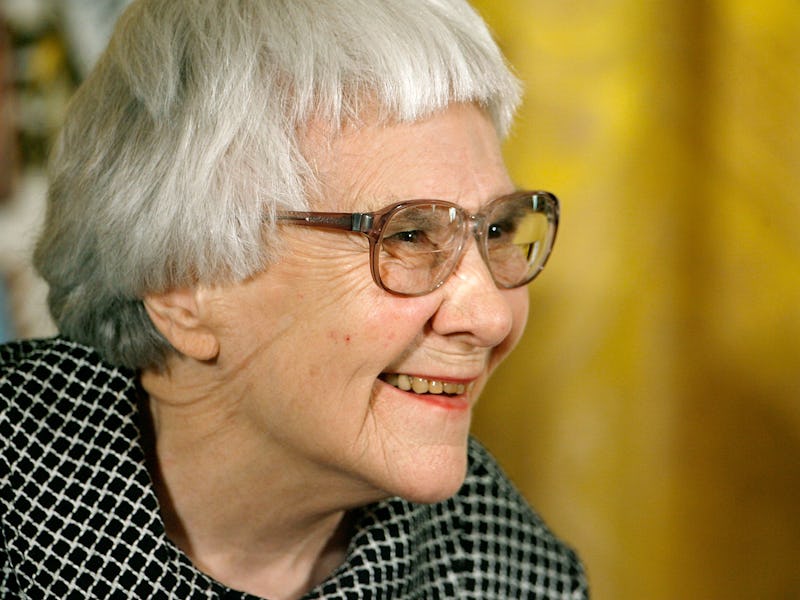Harper Lee's Death and the Demise of the Reclusive Writer
She was a green light to the few writers left who eschew self-promotion.

Harper Lee, who just died at the age of 89, had an impossible career that rest of us would sell our souls for today: She put a single artistic creation into the world and, then, essentially retreated to her writerly cocoon for the rest of her life — zero fucks given. Here is To Kill A Mockingbird: You’re welcome, world. Mission accomplished.
I know that’s simplified, and with the recent release of Go Set a Watchman, she technically put forth two works. But there’s enough questionable information surrounding its release that I feel comfortable striking it from consideration as part of the Harper Lee canon. Now, in the wake of her death, there will be lots of people talking about what Atticus Finch and Boo Radley meant to them and how they named their beloved childhood dog Scout.
But I’m more interested in Harper Lee’s career. As an internet writer and an aspiring novel writer, I have to maintain a social media presence and keep pumping out new material. Once I get a literary agent, nobody would take me on if I said, “OK, there’s my book, that’s it! You’re welcome! I have no current plans for any more!”
Today, it isn’t an option to avoid producing new material or engaging in the self-promotion game. John Scalzi, an author who is a social media ninja, recently told me, “It comes down to, who are you as a person? Are you going to have fun on social media? Does it fill you with apprehension about what you have to perform?”
I fall firmly in the second category. I’m the kind of person who will apologize to you if you step on my foot: I’m sorry my foot rudely interfered with your life! Tweeting at people I’ve never spoken to in real life feels akin to passing a stranger on the street and poking them.
Posting my work on Facebook feels like handing out fliers on a street corner, shouting my message into the internet’s bustling, uncaring abyss. Self-promotion can be fun and creative, and certainly there’s such a thing as an outgoing writer, but most of us aren’t the types to feel naturally comfortable marching up to that stranger on the street.
Harper Lee wasn’t only a great writer and groundbreaking storyteller: As the last and greatest reclusive American author, she was a shining yet elusive beacon to today’s publicity-shy writers. Like Gatsby’s green light, the idea of Harper Lee beckoned us, even as we knew it was probably out of reach.
Sure, you can say it’s mildly possible today: There’s Pynchon. But he still provides a new release every 10 years or so, which is hardly akin to Harper Lee’s single-book mic drop. There’s Donna Tartt, but she, too, still brings forth new material and emerges from her cave every so often. Overseas, there’s Elena Ferrante, but she (or he) has a fairly extensive body of work and an added mystique surrounding her (or his) identity. There is no one else like Harper Lee, and unless every social media platform somehow vanishes, there never will be.
This isn’t to Franzen-ly harp on the evils of social media; it certainly has its value, and I’ve even grown to like Twitter. If To Kill A Mockingbird had come out today, who knows? Maybe Harper Lee would be hashtagging up a storm.
But Harper Lee wasn’t just a person, she was a shining beacon of the prototypical cave-dwelling writer come to life. There was more to her than that, of course, as it is just a wistful idea. But from far away, she seemed to embody it, and with her death, that green light on the dock — the light that wasn’t ever really tangible but shone dimly to those of us foolish enough to look for it — is firmly extinguished.